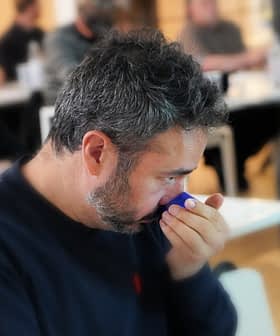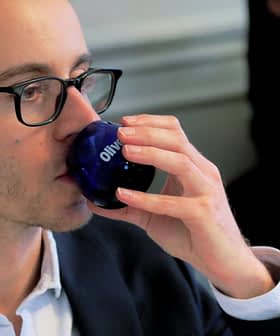Chemists Offer 5-Minute Video on Why Olive Oil is 'Awesome'
A video tells us how the molecules and antioxidants in olive oil help keep you healthy, how to recognize differences between oil varieties, how to use the oil, and how to store it.
The American Chemical Society’s Reactions YouTube channel released a video explaining the chemistry behind olive oil, including how molecules and antioxidants in the oil help keep you healthy, the different varieties of oil, and how to store it properly. The video also emphasizes the importance of freshness in olive oil, as well as the impact of harvesting and extraction techniques on the quality of the oil, recommending buying based on freshness rather than price.
The American Chemical Society’s Reactions YouTube channel has released a video explaining the chemistry behind olive oil and why it is a good kitchen staple. The video goes into how molecules and antioxidants in the oil help keep you healthy, the difference between oil varieties, how to use the oil, and how to store it.
There are hundreds of varieties of olive oil, and it takes over a thousand olives for one liter of high-quality olive oil, the video states. Olives harvested at different points in the season also produce different flavors. Lower quality oils are extracted using chemical solvents like hexane, but the best oils (like virgin and extra virgin oil) are cold pressed using only mechanical processes. Extra virgin olive oil has to meet high-quality taste standards, and have no defects due to oxidation or fermentation. It is the most flavorful, but also the most expensive of olive oil varieties.
Oleic acid is a major component of olive oil which shows up as part of a larger molecule called a triglyceride. Sloppy harvesting and extraction techniques can lead to triglycerides breaking up to form free fatty acids, which means a higher acidity and a lower score on the quality scale.
Olive oil is also rich in monounsaturated fatty acids, which pump up the rate at which cells pull bad cholesterol out of the bloodstream. It is also rich in antioxidants, called plant phenols (like hydroxytyrosol) and vitamin E. The body uses these antioxidants to keep free radicals (which cause cell damage) in check. The antioxidants give olive oil its peppery taste.
Olive oil enhances the flavor of foods. Some of the taste and antioxidants are lost in high temperatures, but you can safely use olive oil in frying, sauteing and baking (up to 400 degrees Fahrenheit). Extra virgin olive oil shines the most in cold dishes where you get more from its taste.
How the oil is stored is important. This is because olive oil does not age well. Light and heat degrade the oil over time and make it rancid due to increased oxidation with its continual exposure to the air. This breaks down the fatty acids in the oil into peroxides that decompose into aldehydes and ketones, which are responsible for unpleasant flavors and odors.
The antioxidant content is also reduced over time. To keep the quality of the olive oil for longer, it can be protected by storage in a dark bottle or storing the bottle in a cool, dark space. Looking for a harvest date on the bottle can also help to ensure freshness. It is advised to use up the oil in six weeks after opening.
Dan Flynn from the UC Davis Olive Center says: “A really good oil should have a flavor reminiscent of something that’s grown out in a grove, and it should have this grassy or maybe a fruity flavor. An oil that’s not very good would remind you more of something that you’ve stored in your garage for a long time.” Flynn recommends buying olive oil according to freshness rather than the price tag.









